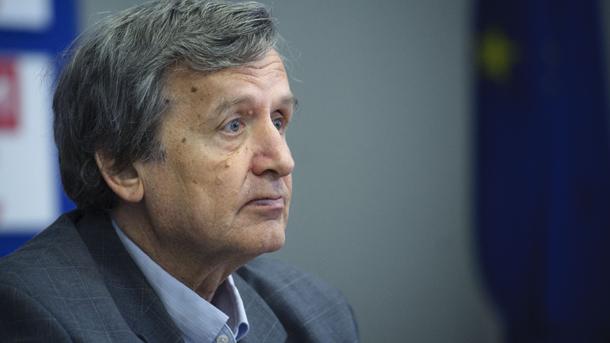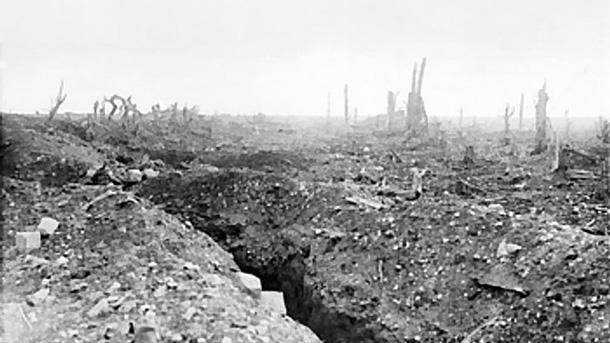This year we mark 100 years since the outbreak of World War I – one of the most devastating wars in human history. Bulgaria joined the war in October 1915, having just emerged from two bloody Balkan wars (1912-1913); it took part in them in a drive to reunite the lands with a predominantly Bulgarian population left outside the country’s borders. The second of these wars ended in national catastrophe.
 “The wounds inflicted by the Second Balkan War were still raw,” says in an interview for Radio Bulgaria prominent historian Academician Georgi Markov. “This prompted the government to have the country join either the Central Powers or the Triple Entente, and quickly. The Bulgarian plenipotentiaries in the principal European capitals predicted that the war would be won by the Entente, as it had enormous human and material resources. And only one minister plenipotentiary – Dimitar Rizov in Berlin believed in Germany’s victory. The bidding between the two rival coalitions – that of Tsar Ferdinand and Prime Minister Radoslavov – was on, but they made the wrong move and chose the losing side because Germany had a more powerful army, that was better trained and armed but lost to the rest of the world.”
“The wounds inflicted by the Second Balkan War were still raw,” says in an interview for Radio Bulgaria prominent historian Academician Georgi Markov. “This prompted the government to have the country join either the Central Powers or the Triple Entente, and quickly. The Bulgarian plenipotentiaries in the principal European capitals predicted that the war would be won by the Entente, as it had enormous human and material resources. And only one minister plenipotentiary – Dimitar Rizov in Berlin believed in Germany’s victory. The bidding between the two rival coalitions – that of Tsar Ferdinand and Prime Minister Radoslavov – was on, but they made the wrong move and chose the losing side because Germany had a more powerful army, that was better trained and armed but lost to the rest of the world.”
The war broke out and to begin with Bulgaria maintained its neutrality, resisting offers from both coalitions.
“But to my mind it was not possible to keep up our neutrality, though we should have stalled for a year when it was clear the Entente would win the war,” Georgi Markov says. “However, Bulgaria chose to side with the Central Powers and the Bulgarian army was racking up victories in the battlefields of Macedonia, Dobruja and on the other side of the Danube – in Walachia and reaching Moldova, but ultimately this war was bound to be lost. It was a protracted war, a war of attrition.”
 Thus the country would go on to a second national catastrophe. But as Defence Minister Angel Naidenov put it: “Bulgaria is the only Balkan country whose capital did not fall to a foreign army in the wars of the 19th and the 20th century. Let me also note,” he adds, “that not a single Bulgarian war flag was captured. In this war almost one million Bulgarian soldiers fought for their country; more than 100,000 of them laid down their lives in battle. As a token of appreciation of their heroism, more than 2,500 war memorials have been erected, though there are more than 1,500 Bulgarian military cemeteries abroad that have fallen to rack and ruin.”
Thus the country would go on to a second national catastrophe. But as Defence Minister Angel Naidenov put it: “Bulgaria is the only Balkan country whose capital did not fall to a foreign army in the wars of the 19th and the 20th century. Let me also note,” he adds, “that not a single Bulgarian war flag was captured. In this war almost one million Bulgarian soldiers fought for their country; more than 100,000 of them laid down their lives in battle. As a token of appreciation of their heroism, more than 2,500 war memorials have been erected, though there are more than 1,500 Bulgarian military cemeteries abroad that have fallen to rack and ruin.”
A National Committee has been set up for the centennial anniversary of World War I; it includes representatives of the Presidency and the government, of the Defence Ministry, the heads of the Georgi Stoikov Rakovski Military Academy, of the National Museum of Military History and the National Museum of History, as well as regional governors, scholars from the Bulgarian Academy of Sciences, the Bulgarian Culture Club in Skopje, Macedonia etc. One of the committee’s tasks is to restore the war memorials that have fallen into oblivion. There will also be conferences, dedicated to the most important military operations of the Bulgarian army and the leading figures of the war. The Bulgarian National Radio and Bulgarian National TV will give coverage to all events, connected with the anniversary.
English version: Milena DaynovaAll Souls' Day (Zadushnitsa in Bulgarian) is an important day for many Christians. On this day, we remember deceased relatives and loved ones. The first of the three All Souls' Days of the year, also known as the Great or All Souls' Day, falls on the..
152 years after Bulgaria lost its beloved son and advocate for a free, independent and tolerant state – Vasil Levski, his personality continues to excite and inspire Bulgarians from all generations. Scholars continue to study the work of the Apostle..
Vasil Levski is a Bulgarian revolutionary and national hero who fought for the Liberation of Bulgaria from the Ottoman Empire. He is an ideologist, founder and organizer of the Internal Revolutionary Organization, for which grateful..
All Souls' Day (Zadushnitsa in Bulgarian) is an important day for many Christians. On this day, we remember deceased relatives and loved ones. The first of..

+359 2 9336 661
